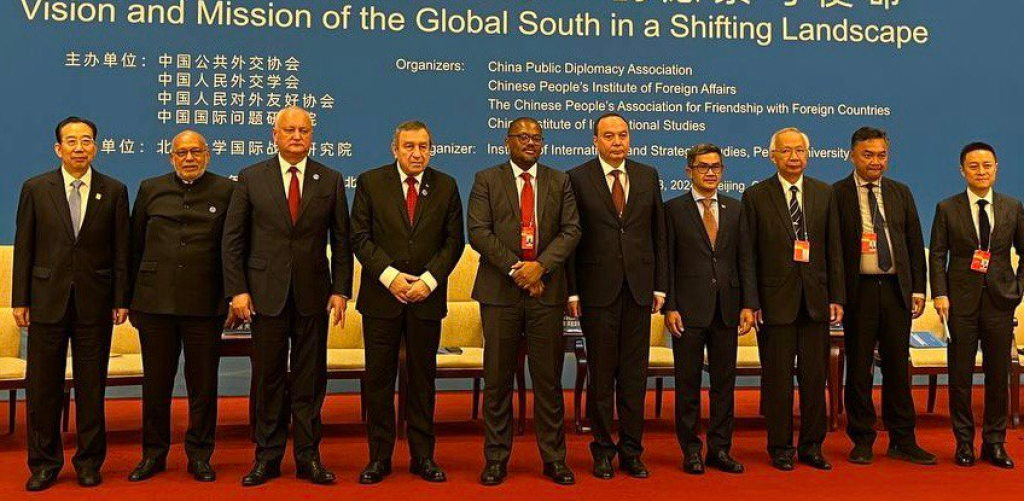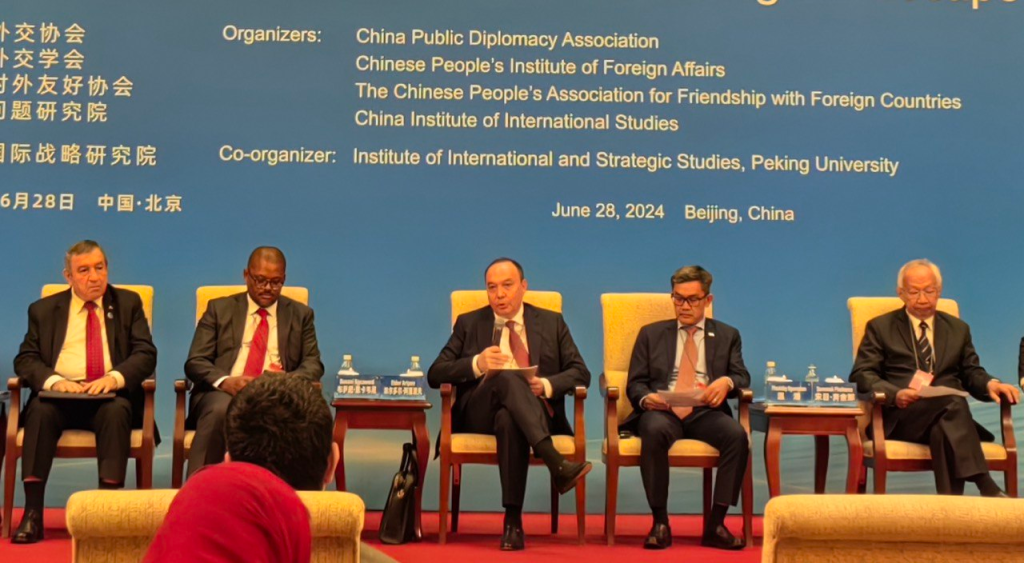
On June 28, Beijing hosted an international conference dedicated to the 70th anniversary of adopting the Five Principles of Peaceful Coexistence. The President of China Xi Jinping opened the meeting.

Eldor Aripov, Director of the Institute for Strategic and Regional Studies under the President of the Republic of Uzbekistan (ISRS), addressed the session dedicated to maintaining independence and jointly building a fair and equitable international governance system. He stated that, unfortunately, 70 years after adopting the Five Principles, the world has not become more stable and fair.
“Today, we are once again witnessing an increase in geopolitical confrontation, the emergence of new conflicts, a decrease in the level of trust, the revival of stereotypes of bloc thinking, and the growth of trade and sanctions wars. It is obvious that in these conditions, the deep meaning of the “five principles” not only remains relevant, but is significantly increasing”, the ISRS representative noted.
Eldor Aripov emphasized that realizing the need to take quick and decisive measures to build good-neighborly relations with the region’s countries, the President of Uzbekistan in 2016 put the concept of peaceful coexistence at the heart of his foreign policy. He stated that Uzbekistan’s regional policy would strictly adhere to the principle of “not avoiding acute issues, but seeking reasonable compromises”.
As a result, unprecedented results have been achieved in resolving border issues, jointly reconciling mutual contradictions. Thanks to the wisdom and political will of all heads of state, Central Asia is becoming increasingly consolidated and stable. The Central Asian states are increasingly aware of their regional identity and strive to build a shared, peaceful, and prosperous future.
In this context, Eldor Aripov emphasized that China fully supports strengthening regional cooperation in Central Asia. The China Central Asia format at the level of heads of state is developing fruitfully. Multilateral transport connectivity, trade, and investment cooperation projects are being implemented in practice.
In conclusion, the ISRS Director noted that today, more than ever, the world needs to unite, find compromises, and restore trust based on the principles of peaceful coexistence. “Responsibility for this lies with each of us, not only with those who make decisions, but also with researchers and media representatives”, he emphasized.
The ISRS Director regretfully noted that the world has never been so disunited and polarized. At the same time, global interdependence has become the determining logic of development in the 21st century. He urged to understand that this is not a challenge but an opportunity. “Only consolidation and unification in solving common problems will guarantee universal well-being and prosperity”, Eldor Aripov emphasized.
UzA








